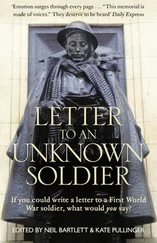Gross. Disgusting. He didn’t want to think about that. They’d had that rough patch a couple of years ago but nothing came of it. They were as married and as boring as always.
Michael and Jack had gone to the barber together on the weekend; they did this every six weeks or so. They always walked there. Jack would have preferred to drive, but his dad insisted. They talked about sports, which neither of them were all that interested in. When Jack was five, one day his dad had said, “We’d better pick a team. English boys need to support a football team.”
“Manchester United,” Jack had said. Some of his friends at school supported them. Frank had a miniature Manchester United kit that he wore most weekends.
“No,” his dad said. “Let’s go for a London team.”
Jack couldn’t think of any London teams.
“Let’s support Chelsea,” Michael said.
And so they did. Now as they walked to the barber, they discussed how the team was faring. Jack gleaned enough information from the internet to pretend he knew what he was talking about, while his father took a more statistics-based, analytical approach. That conversation didn’t last long and they walked the rest of the way in silence. But the silence between them was easy. Unlike with Harriet. With his mum, Jack always felt as if she was barely keeping a lid on it, all the millions of things she wanted to say to him, all the instructions, all the questions. Sometimes he dreaded being with her.
Still, Jack got along better with his mum these days. Well, kind of. Sometimes. He thought that since they had their “events” and she lost her job, she had softened a little. No, that wasn’t the right word. Acquiesced. Given up. She had more time. The domestic goddess routine didn’t suit her, Jack and his mum both knew that, but they pretended. The fact was, Jack didn’t need her anymore. In some countries he’d have left home ages ago. In some countries he’d have a job and a wife and a child of his own. Or he’d live in a slum and sell his body for crack. Jack wondered about Yacub. Maybe he had five kids and a wife in a burqa back in his village in Iraq or wherever he came from. Jack resolved to ask where he was from, maybe once they’d finished this game. Sometimes he wondered about leaving home, heading off into the wide blue yonder, but then he thought: no. Who would cook his dinner? Who would pay his allowance?
Being sixteen sucked: tons of exams and no money. Still, Jack told himself, it was better than being fifteen. And that was better than being fourteen. Fourteen was truly crap. When he was fourteen, David McDonald died and Ruby ended up in hospital and he might have been responsible; he nearly got expelled; he and his mum got chased by a psychopath and his mum lost her job. Fourteen sucked.
Yacub and Jack played World of Battle Fatigues for a while—Jack was surprised to find Yacub was pretty good at it for a guy who was living in the little room at the back of the house. He heard Harriet’s keys in the front door.
“That’s her,” he said.
“Your mother?”
“She’s coming in.”
Yacub stood up and put his hands together and gave Jack a little bow. “Very nice to have made your acquaintance,” he said. “I’d better go.”
He shut the door to the little room as Harriet entered the sitting room. Jack pretended to be playing his game.
“Hi,” she said.
His mother sounded tired.
“Hi,” he replied.
As always, his mum took the fact that Jack responded to her greeting to mean that he was ready for a full-on conversation. “How was your day?”
“Fine,” Jack said. Ordinarily, he wouldn’t pause the gameplay, but today he paused. “How about yours?”
She was carrying a shopping bag and a handful of paperwork. She went straight into the kitchen. Before Jack realized it, he’d followed her.
“Okay,” she said. “A bit tiring.”
He struggled to stop himself from firing a string of questions at her. Instead he tried to remember how he behaved normally: oh yeah, I ask her to do stuff for me. “Can you drive me to school in the morning? I’ve got to take back all that kit.”
The colour drained from his mother’s face. She swallowed. “Can’t,” she said. “No car.”
“Where’s the car?” Jack asked.
His mother’s eyes widened and her nostrils flared. Jack thought, it’s as though I’m the parent and she’s the truth-dodging teen. “I had an accident.”
“What happened?”
She paused long enough to give herself away.
“A tree fell on the car.”
He folded his arms across his chest. “Oh yeah?” he said. “Were you hurt?”
“No. I wasn’t in the car at the time. It’s in the garage. I’m waiting to hear whether it can be fixed.”
He could see from her face that she had managed to move from lying into more truthful territory. But it didn’t make sense. A tree fell on her car? How? Where?
“I’ll cook supper later,” she said. “Do you have any homework? Have you done your guitar?”
He rolled his eyes at her and slouched back into the sitting room.
Most days when Jack and Harriet were home together he was either in his room on his laptop or in front of the games console, and she was in the kitchen at her so-called workstation. Harriet had spent a large part of the past two years online—doing what, she was never quite sure, given the way time contracted on the internet. She monitored news stories and had become fascinated with the way that certain stories started as tiny specks but then became huge sandstorms, like the way a young man immolating himself in Tunisia became the Arab Spring.
The kitchen computer corner now resembled the NASA control room at Houston—three big monitors, two keyboards, a couple of smartphones, several tablets, an e-reader, an external hard drive, a backup drive and a small jungle’s worth of cables. Occasionally, very occasionally, Jack brought his laptop into the kitchen with him and they worked together companionably. One afternoon a while back, Harriet got up to make dinner and was standing behind Jack at the counter. She could see his screen over his shoulder. He had his headphones on with at least a dozen windows open at the same time—he was watching music videos and using chat and a bunch of other applications and websites that Harriet had never seen before. It was unusual, this opportunity to watch him online, and as she chopped the onion she tried to act normally, so that he didn’t cotton on to the fact that she was spying on him. Now that he was a bit older he seemed to find her slightly less annoying, but if he noticed her watching him, she’d be in trouble.
So she had watched him as he flicked from site to site, conversation to conversation. He moved rapidly, looking at his friends’ photos, responding to their comments. He was happy. Harriet was happy. She chopped that onion for ages, all the way through the very loud Skype discussion with his friend about the merits of Frank Ocean or otherwise.
But today Jack was on his games console in the sitting room and Yacub was in the little room out back. Yacub seemed okay. She’d checked on him just now—asleep again under the heaped-up covers, but the sandwich had been eaten.
What was she going to do with him? How was she going to tell Michael and Jack that a man fell from a plane onto her car and she’d brought him home? There was no point in telling anyone anything if Yacub was in fact dead. Do ghosts eat sandwiches? Had no one else seen him fall?
She used all three of the screens simultaneously, flicking through the feeds and the alerts. She was usually very precise with keywords, search terms and hashtags, but now she threw the net wider and wider: landing gear, Heathrow, #Pakistan, asylum, illegal entry, supermarket car parks, #fallingmen, man falling, flight paths, sky. Nothing—well, plenty of stuff surfaced but she did not find any references or links to her falling man, however oblique. She kept poking away, moving from application to application, website to website, search engine to search engine, new media to old media. Nothing.
Читать дальше












